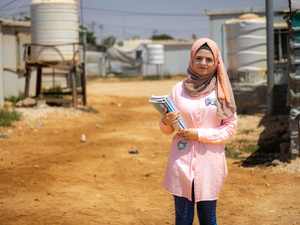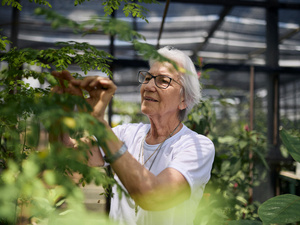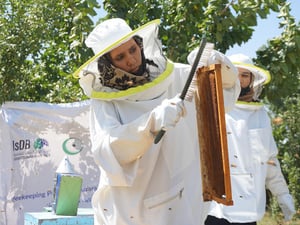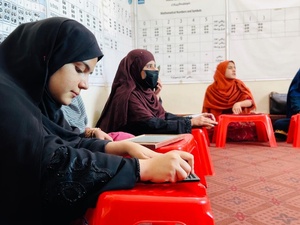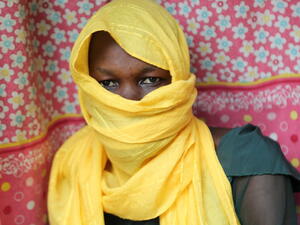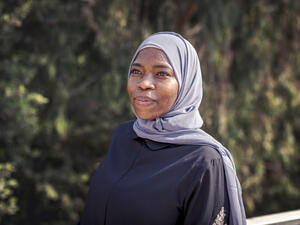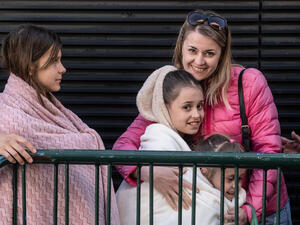International Women's Day: UNHCR seeks greater access to education for women
International Women's Day: UNHCR seeks greater access to education for women
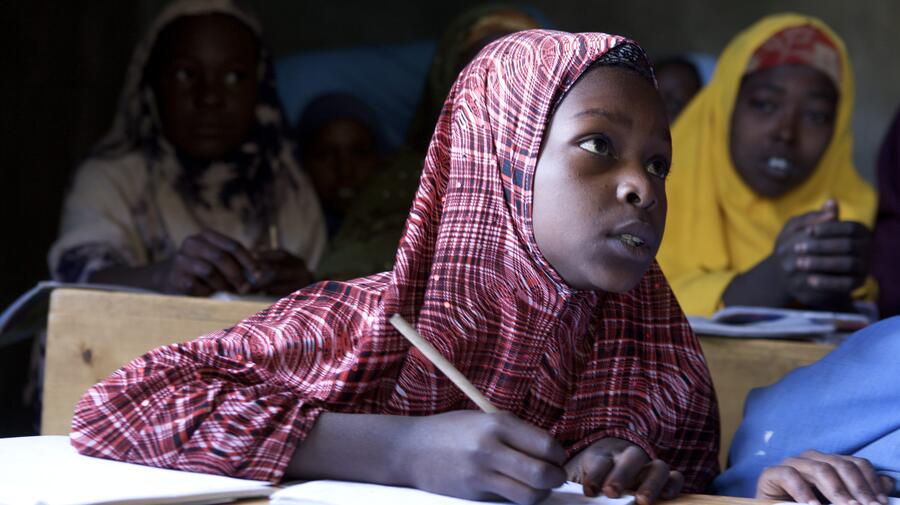
UNHCR places great importance on ensuring that refugee women and girls, like this young Somali, get access to education.
GENEVA, March 8 (UNHCR) - UN High Commissioner for Refugees António Guterres marked the 100th anniversary of International Women's Day with a call for greater access to education and training for forcibly displaced women and girls around the world.
"We need to work harder to redress impediments to access to primary and, in protracted refugees situations particularly, secondary education. These include the lack of required identity or status documents and the means to pay for school uniforms, meals and transport," Guterres said in a message Tuesday to all UNHCR staff.
"Today, only 43 per cent of girls in the developing world attend secondary school, despite the multiple benefits attendance bestows, such as delaying the age at which women first give birth, enhancing maternal health, and strengthening women's bargaining power within households, which translates into greater economic and political participation," added the High Commissioner, who is in Tunisia assessing the situation for thousands of people who have fled Libya.
This year's UN-selected theme is "Equal access to education, training and science and technology: Pathway to decent work for women." Guterres said it gave an opportunity to look at ways in which the refugee agency and its staff can improve educational opportunities for women and girls of concern to UNHCR.
"Just as we are using the commemoration of the anniversaries of the refugee and statelessness conventions to help forge a new protection dynamic, let us use the 100th anniversary of International Women's Day to make the millennium development goal of gender parity in primary and secondary education a reality," Guterres said.
This year, the 60-year-old UNHCR is marking the anniversaries of the 1951 UN Convention relating to the Status of Refugees and the 1961 Convention on the Reduction of Statelessness. As part of the commemorations, UNHCR has been holding a series of regional dialogues on women and girls in cooperation with the Centre for Refugee Research in Sydney, Australia.
The dialogues will provide a platform for some 500 forcibly displaced women and girls to come together with UNHCR staff, implementing partners, government officials, community-based organizations and male refugees to discuss the main protection problems they face and to recommend possible solutions.
The first gathering was held in November in the Indian capital, New Delhi, and was followed by meetings in Colombia and Jordan. A dialogue is now under way in Uganda and will be followed by gatherings over the next three months in Zambia, Thailand and Finland.The outcomes will feed into other events during the year, particularly a ministerial-level meeting for December 7-8 in Geneva.
Guterres said in his message that the "Regional Dialogues have confirmed the importance refugee and displaced women and girls place on being able to attend local schools in urban environments." The meetings cover 10 core areas of protection: sexual and gender-based violence, education, health, shelter, economic self-reliance, individual documentation, leadership, sanitary materials, legal remedies and general violence.
International Women's Day is being celebrated by UNHCR staff in offices around the world. At the organization's headquarters in Geneva, an exhibition of storyboards created during the dialogues in India, Colombia and Jordan portrays the protection problems refugee women and girls face, together with the solutions proposed by the participants.
The first International Women's Day was marked on March 19, 1911 in Austria, Denmark, Germany and Switzerland.

